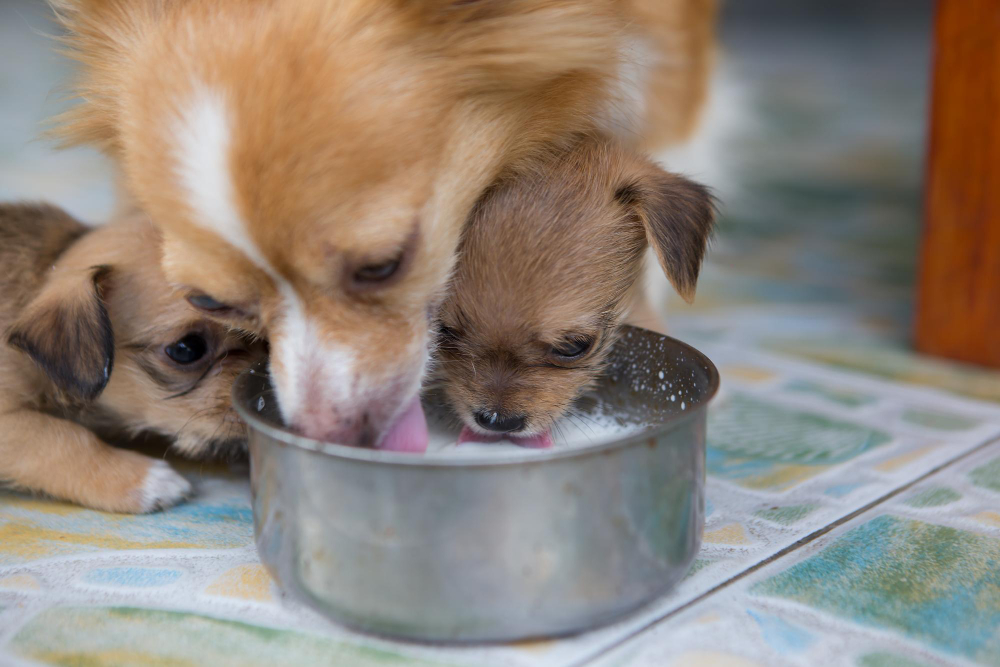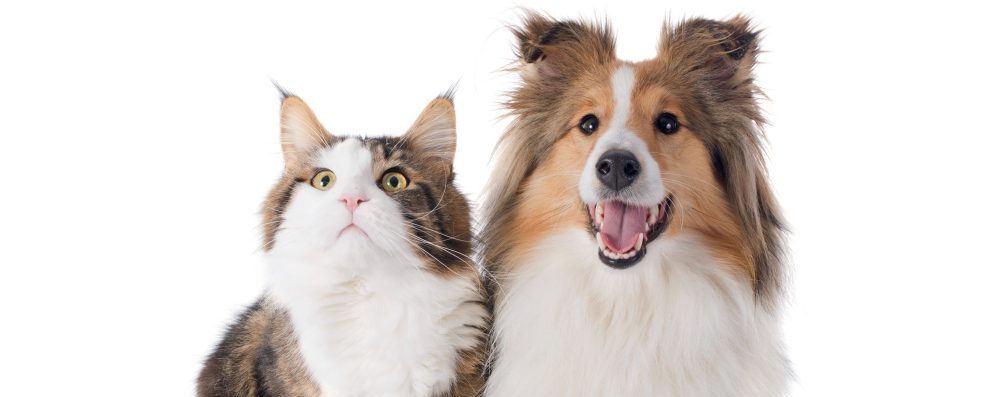Milk consumption in pets has always been a topic of debate among pet owners. A frequently asked question is, “can a dog drink cat milk?” In this article, we will address this question and related queries, such as “can dogs drink cat milk?”, “can dogs have cat milk?”, “can dogs drink kitten milk?”, and “can dogs and cats drink milk?” By the end of this article, you will have a clear understanding of milk consumption in cats and dogs and whether it is safe for them to drink each other’s milk.
Can Dogs Drink Kitten Milk? What Is Kitten Milk?
Kitten milk is a specially formulated milk substitute designed to meet the nutritional needs of young cats. It is often given to orphaned or abandoned kittens that cannot receive milk from their mothers.
Lactose and nutritional differences between dog and cat milk
Lactose is a sugar present in milk that requires the enzyme lactase for proper digestion. Cats and dogs differ in their ability to digest lactose, which influences the composition of their milk.
Cats are less efficient at producing lactase, making their milk lower in lactose than dog milk. As they mature, their lactase production further declines, leading to a reduced ability to digest lactose. This is why kitten milk is formulated with lower lactose levels to better suit their digestive capabilities.
In addition to lactose, there are other nutritional differences between dog and cat milk. Cat milk has a higher protein and fat content, while dog milk contains more carbohydrates. These distinctions are due to cats being obligate carnivores that rely on protein and fat as primary energy sources, whereas dogs are omnivores that can also utilize carbohydrates for energy.
Understanding the lactose and nutritional differences between dog and cat milk is crucial for determining whether dogs can safely consume kitten milk without adverse effects.
Analyzing whether dogs can safely consume kitten milk
Considering the lactose and nutritional differences between dog and cat milk, is it safe for dogs to consume kitten milk? The answer largely depends on the individual dog. Some dogs may tolerate kitten milk without any issues, as their bodies can produce adequate amounts of lactase to digest the lactose present. However, others may experience digestive problems, such as diarrhea or vomiting, due to the higher protein and fat content or if their lactase production is insufficient to break down the lactose in kitten milk.
Expert opinions and references
Most veterinarians and pet nutritionists recommend sticking to species-specific milk or milk substitutes to avoid potential health problems. While an occasional small amount of kitten milk may not harm a dog, it is best not to make it a regular part of their diet. However, in emergency cases, such as rescuing a puppy without immediate access to a species-specific substitute, kitten milk can be used as a temporary solution until a more suitable option is available. In such situations, it is essential to closely monitor the puppy for any signs of intolerance or digestive issues and consult a veterinarian as soon as possible.
Can Puppies Drink Whiskas Cat Milk? Introduction to Whiskas Cat Milk
Whiskas cat milk is a popular supplement designed as a treat for cats from 6 weeks of age. While not intended to replace kitten milk or meet the complete nutritional needs of a cat, Whiskas cat milk is lower in lactose than regular cow’s milk, making it more easily digestible for cats. It serves as a tasty treat that can be enjoyed by cats in addition to their regular diet.
The importance of species-specific milk replacers
When considering whether puppies can drink Whiskas cat milk, it is essential to understand the importance of species-specific milk replacers. Ideally, dogs should consume milk replacers formulated for dogs, and kittens should consume milk replacers formulated for cats. By providing pets with species-appropriate milk replacers, you can ensure they receive the necessary nutrients to support their growth and development while preventing possible digestive problems. Using a milk replacer designed for another species may not meet the specific nutritional requirements of puppies and could potentially cause harm.
Analyzing whether puppies can safely consume Whiskas cat milk
Given that Whiskas cat milk is a food supplement specifically designed for cats over 6 weeks of age, is it safe for puppies to consume? The answer largely depends on the individual puppy. Some puppies may tolerate Whiskas cat milk without any issues, while others may experience digestive problems due to the higher fat and protein content or the differences in lactose levels compared to dog milk. It is important to remember that Whiskas cat milk is not formulated to meet the nutritional needs of puppies and should not be considered a suitable replacement for species-specific milk substitutes.
Expert opinions and references
Veterinarians and pet nutritionists generally advise against feeding Whiskas cat milk to puppies. Instead, they recommend providing puppies with a species-appropriate milk substitute or a balanced puppy diet to ensure proper growth and development.
Is Cat Milk the Same as Dog Milk? Comparing the Composition and Nutritional Value of Cat and Dog Milk
While both cat and dog milk provide essential nutrients for their respective species, there are significant differences in their composition. As mentioned earlier, cat milk has higher protein and fat content, while dog milk contains more carbohydrates. These differences reflect the unique dietary requirements of each species.
Lactose content and digestibility
Another critical difference between cat and dog milk is their lactose content. Cats have a lower tolerance for lactose than dogs, making cat milk lower in lactose than dog milk. This is because cats gradually lose their ability to digest lactose as they grow. Similarly, some dogs may also experience a decline in lactase production as they age, leading to a reduced ability to digest lactose. However, this decrease in lactase production is generally less pronounced in dogs than in cats.
Consequences of feeding dog milk to cats and vice versa
Feeding dog milk to cats or cat milk to dogs can lead to digestive issues due to the differences in their composition and lactose content. In some cases, this may result in diarrhea, vomiting, or other gastrointestinal problems. Additionally, feeding cat milk to dogs may not meet their specific nutritional needs, while feeding dog milk to cats may cause deficiencies in essential nutrients, such as taurine.
What Kind of Milk Can Cats and Dogs Drink? Risks of Feeding Cow’s Milk to Cats and Dogs
Many pet owners wonder, “can dogs and cats drink milk” from cows. While some cats and dogs can tolerate small amounts of cow’s milk, it is generally not recommended. Cow’s milk has a higher lactose content than cat or dog milk, which can lead to digestive problems in pets that are lactose intolerant.
Safe alternatives: lactose-free milk and milk substitutes
For pet owners looking to provide their cats and dogs with a safe milk alternative, lactose-free cow’s milk or milk substitutes can be given as a complementary treat alongside their regular diet. However, it is essential to note that lactose-free cow’s milk does not provide all the necessary nutrients required by cats and dogs and should not replace a balanced diet.
Milk substitutes specifically designed for cats and dogs are generally well-tolerated and formulated to meet the specific nutritional requirements of each species. These products are a more suitable option for pet owners looking to provide a milk-like treat to their pets while ensuring they receive the necessary nutrients.
Guidelines for feeding milk to cats and dogs
If you decide to give your pet milk, it is essential to follow some basic guidelines:
- Choose a species-appropriate milk or milk substitute.
- Introduce the milk gradually to avoid digestive issues.
- Monitor your pet for any signs of intolerance or allergies.
- For adult pets, milk should be given as a complement to a balanced diet. However, for newborn animals requiring milk replacers, it can be a complete food source. In such cases, it is crucial to consult an animal nutritionist for appropriate energy adjustments and to ensure the pet’s nutritional needs are met adequately.
Always consult your pet nutritionist before making any changes to your pet’s diet, as individual needs may vary.
Conclusion
In conclusion, dogs and cats have distinct nutritional needs, and their milk differs in composition and lactose content. While some dogs may tolerate cat milk or cat milk supplements like kitten milk and Whiskas cat milk, it is generally not recommended due to potential digestive problems and the fact that these products are specifically formulated for cats.
Pet owners should choose species-appropriate milk or milk substitutes to ensure their pets receive the necessary nutrients without causing digestive issues. For adult pets, milk should be provided as a complementary treat, while newborn animals requiring milk replacers may need guidance from an animal nutritionist and veterinarian to ensure their nutritional needs are met adequately.
It is essential to consult a pet nutritionist before making any dietary changes for your pets, as individual needs may vary. By taking these precautions, pet owners can contribute to the health and well-being of their beloved cats and dogs.

